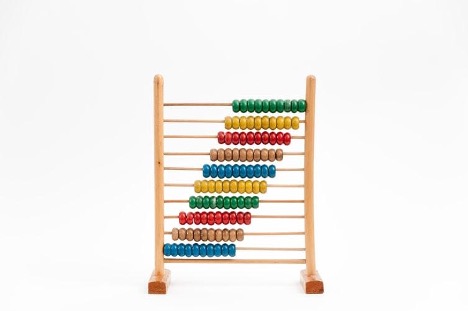
Many students wonder why math is so important—especially in the world that they’re growing up in, a world where a calculator is always at their disposal, right in their pocket in the form of their smartphone.
Forget a calculator; with Google on their side, they have answers to many more math problems than students of the past did.
Parents, when helping their children with homework, may wonder the same thing. Why is learning math so important if the answers are right at your fingertips—with none of the grueling work included?
(You may not be aware of this, but a parent’s attitude toward math can greatly affect how a child feels toward it. So, when helping your child with their homework—try to stay positive, even when things get hard. This mindset will rub off onto them and greatly benefit their mathematics journey.)
A child excelling in math has a greater positive impact than simply doing well in school. Understanding mathematics helps a child navigate life more easily, which is why developing an affinity for math early in life is so important.
The History of Mathematics
Back in the 1920s, algebra and geometry in the United States were taught as “intellectual luxuries,” and algebra was even referred to as a “useless subject” by the Massachusetts Commissioner of Education. Students of this time were taught only basic math that had practical life applications, but this changed after World War II.
Then, policymakers began to rally for a stronger math curriculum—this coincided with the space race of the 1950s. The workforce needed to understand how to navigate space and the tools that it took to get there, so their brains needed to be molded to handle such information. To this day, schools are still working to increase students’ proficiency in math because of its great impact on the economy’s wellness.

Critical Thinking and Logic
Order and logic are the two foundations of mathematics. Even though there may be multiple ways to reach the end of the equation, there is only one correct answer. This process helps children learn predictability and logic—using the thought process that carrying out one action gets the desired result every time.
The discipline that children learn from this process can be easily carried through to everyday life in our increasingly technical world. High-powered companies are likely to hire math majors because of their knowledge in logic and critical thinking. Putting this thought process to use occurs when students must explain how they reached the end result of a problem—when a student understands how to explain that type of critical thinking, it creates an avenue for critical thinking in all areas of life.
Those who are good at math know how to think. It’s as simple as that.
Life Skills
Independent living is next to impossible without the use of math skills. In early grades, children begin to learn about money and, later, can calculate percentages and fractions using math skills that they’ve gathered along the way.
Children not only need math skills to stay afloat in a technical world—one that requires knowledge of digital appliances, tools, and gadgets—but they also need math skills for cooking, managing a budget, and finagling a good deal.
Careers
Nearly every job is related to mathematical skills on some level, even entry-level jobs that most wouldn’t expect. Cashiers must be able to count money; customer service representatives must be able to discuss a customer’s bill and its potential discrepancies.
Those who are proficient in math and seek out a higher degree will find jobs where more in-depth mathematical skills are needed, those related to our ever-growing digital age. These are higher-paying jobs like those available in engineering and medical research.
Students who are not interested in math not only need it to graduate, but they need it to stay afloat in the twenty-first century.
Daily Math
Montessori methods teach mathematics to students in a way that piques their interest. This gets children curious at a young age, which allows them to remain engaged as they grow older—and this turns them into successful, capable adults.
Using real-world concepts for mathematics creates relevancy for the skills that helps students see how important math is for their everyday, technical life.





